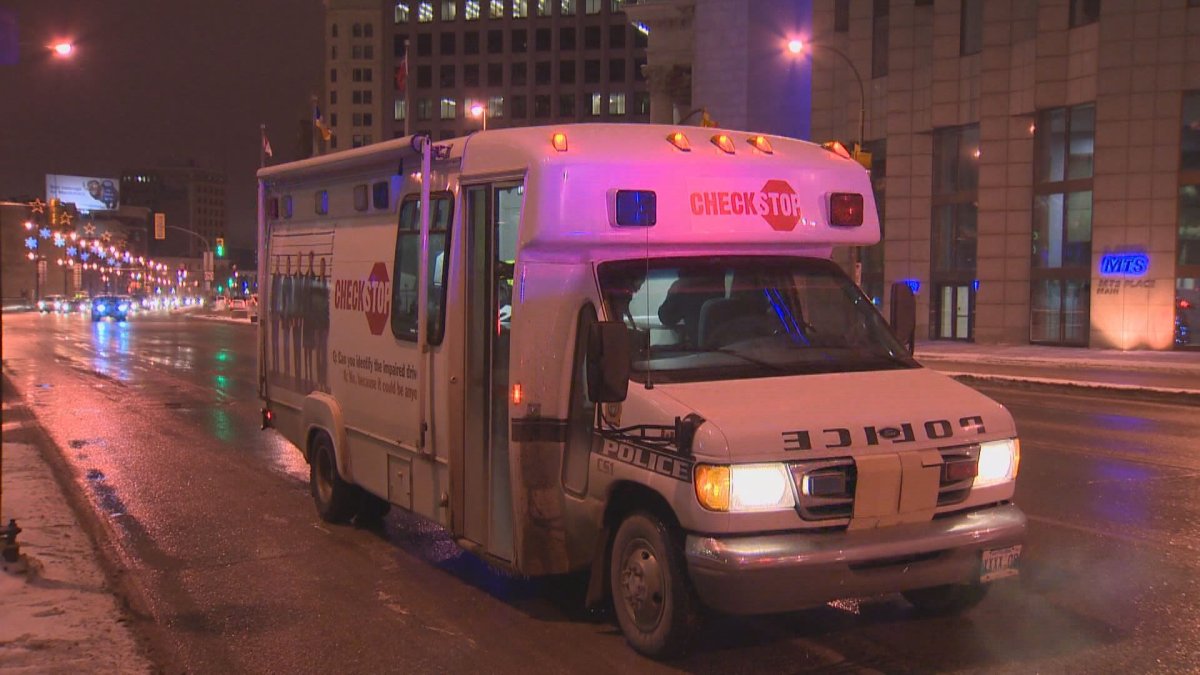WINNIPEG — Drinking and driving has long been a concern but new numbers released by Manitoba Public Insurance show drivers are also getting behind the wheel while high.

One in ten Manitoba drivers tested positive for drugs, according to newly released results from MPI’s roadside checkstop survey.
READ MORE: Winnipeg drivers asked to voluntarily submit DNA sample for drug testing at checkstop
In total, 53 per cent of drivers with drugs in their systems tested positive for cannabis, 31 per cent for cocaine, 12 per cent for opioids, and two per cent each for benzodiazepines and amphetamines/methamphetamines.
22 per cent of these drivers tested positive for more than one drug.

Get breaking National news
Just over 1,200 drivers participated, 124 tested positive for some form of drug.
MPI said the purpose of the survey was to establish a baseline for current drug and alcohol usage on Manitoba roadways.
“Survey results are a clear indication that despite significant education and enforcement efforts, many Manitoba drivers continue to operate motor vehicles while impaired by drugs or alcohol,” said Crown Services Minister Ron Schuler, in a press release. “These results will help guide not only messaging related to the dangers of drug and alcohol use while driving, they will also provide a baseline from which we will measure the effects of both legislative changes and future enforcement efforts.”
The results come after a controversial roadside checkstop last fall.
READ MORE: Contentious roadside drug survey may not have followed protocol: documents
MPI hired Prairie Research Associates to ask people who had just passed through a police checkstop if they would voluntarily agree to take a breathalyzer and provide a saliva sample to be tested at a lab for the presence of drugs.
Many Manitobans voiced concerns about submitting to a drug test by providing saliva samples, which contain DNA, without knowing exactly what would happen to those samples.
MPI later said the samples would be immediately destroyed after analysis and would not be tested for anything involving DNA sequencing or profiling.
According to the crown corporation, similar surveys were conducted in Ontario in 2014 and British Columbia in 2010 and 2012, although no data was available for any of those.
MPI maintains that all information collected was voluntary and remained anonymous.








Comments